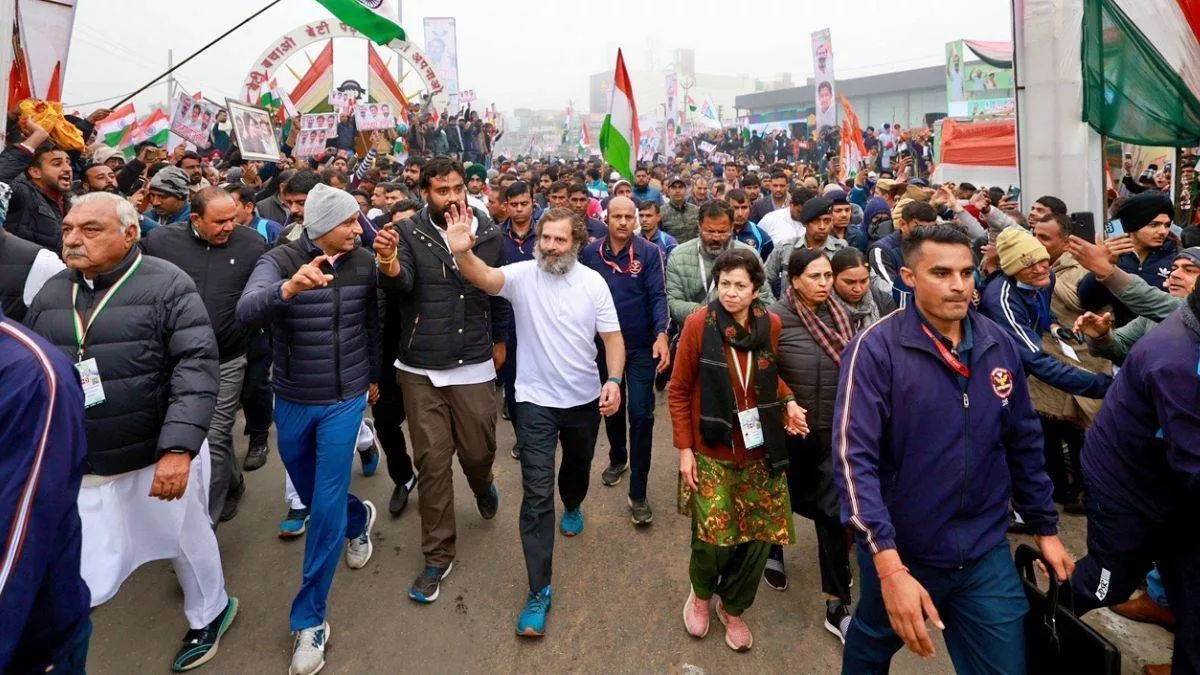
New Delhi: Rahul Gandhi appears determined not to tone down his push for social justice, with the demand for a Caste Census at its forefront, as the Congress heads into another Lok Sabha election. While a section of his party may not be enthused and Prime Minister Narendra Modi adjusts his strategy for a counter, Rahul's emphasis on social justice continues.
Some argue that Rahul’s emphasis on social justice is not yielding votes, as evident in recent elections. However, supporters of his viewpoint believe that Modi’s response, including awarding Bharat Ratna to Karpoori Thakur and highlighting ‘new castes,’ reinforces the notion that the Congress leader is correct in his emphasis.
Rahul is pushing for five ‘nyays’ through his interactions during the Bharat Jodo Nyay Yatra, as Modi seeks to marry 'mandal' with 'kamandal' by defining the poor, youth, women, and farmers as the "new castes." The rhetoric on social justice has intensified as the yatra advanced through Bihar and Jharkhand.
In addition to advocating for justice for women, youth, and farmers, observers note that Rahul has emphasized the importance of 'bhagidari' or representation. His aggression on the issue is also evident from his attack on Bihar Chief Minister Nitish Kumar after the latter's latest political switch.
As the entire ecosystem of the ruling establishment echoes Modi, the Congress leader has taken an aggressive stance, questioning the Prime Minister about projecting himself as an OBC. This inquiry comes in light of Modi's assertion that there are only two castes in the country, the rich and the poor.
“When there is no one backward, no Dalit, no tribal, then why did Modi-ji call himself OBC for so many years? So stop irrelevant talks…To provide social and economic justice…To bring the weak and deprived into the mainstream, there will be a count. The BJP government should count its days, we are going to get the Caste Census done,” Rahul posted on ‘X’.
The recent electoral reversals in the Hindi heartland have not changed Rahul’s heart on abandoning the social justice agenda though a section in the party has urged him to move on.
However, leaders assert that Rahul believes the party's stance on such issues should not be determined solely by election outcomes, and they should remain steadfast in their position.
Political commentator Rashid Kidwai said Rahul was not getting the support from his party on a “potent issue” like Caste Census “largely because its leaders have upper caste sensibilities”.
“Rahul does not get his party ecosystem’s support like Modi does. Like in the case of his ‘Chowkidar chor hai’ campaign, the party and Rahul were not on the same page. In the Chhattisgarh and Rajasthan polls, only Rahul spoke about the Caste Census while no one else did,” Kidwai told DH. He also mentioned that Rahul needs to communicate his stand to the party before initiating such campaigns.
Some leaders complain that Rahul makes up his mind on issues and never adjusts it to address political exigencies. They claim that he has strong views and wants the party to follow them before leaders and workers are prepared for it.
However, his supporters say he is not obstinate and is willing to temper his themes, as he did with Adani or the 'jitna abadi, utna haq' slogan, while not abandoning the key issue.
Rahul first spoke about the Caste Census on April 16 in Kolar, presenting it as a Congress promise during the Karnataka Assembly election campaign last year.
For a while, they claimed, he aggressively pushed for ‘jitna abadi, utna haq’ (representation as per population), but after discussions in the Congress Working Committee, he now argues for representation commensurate with the population.


